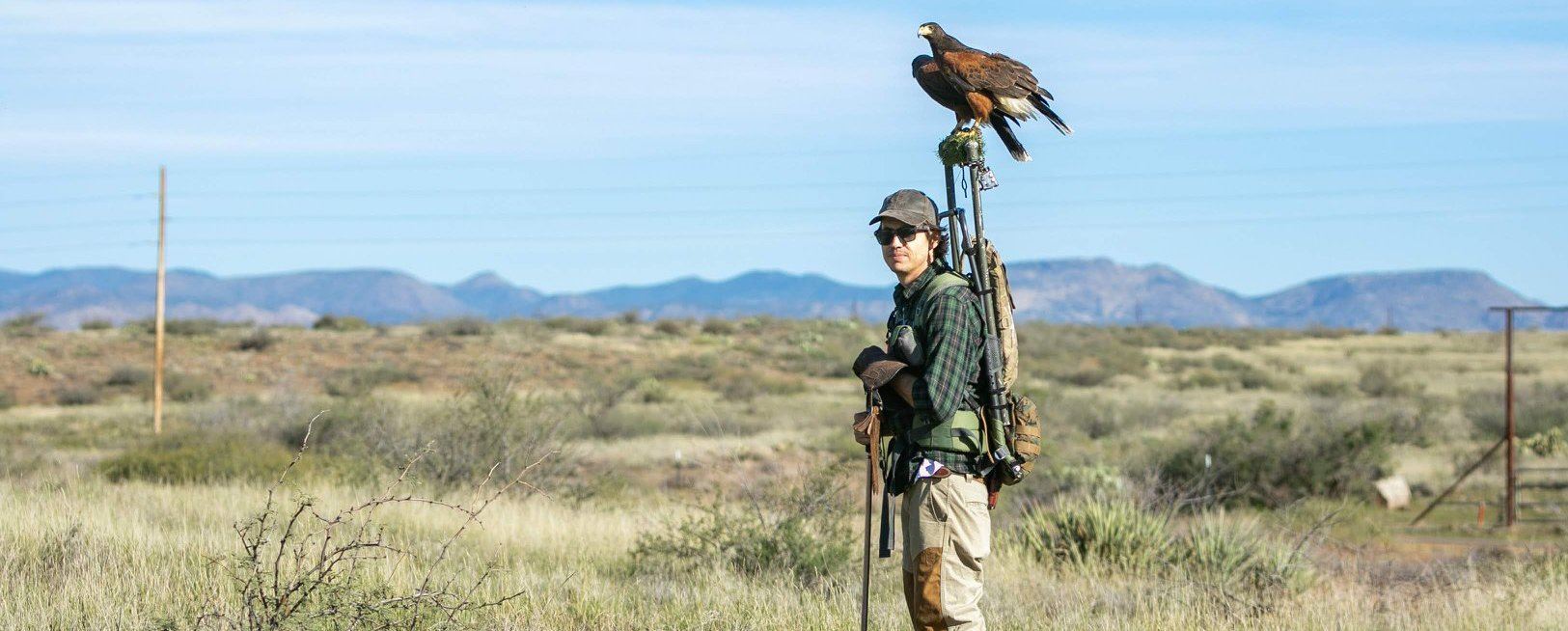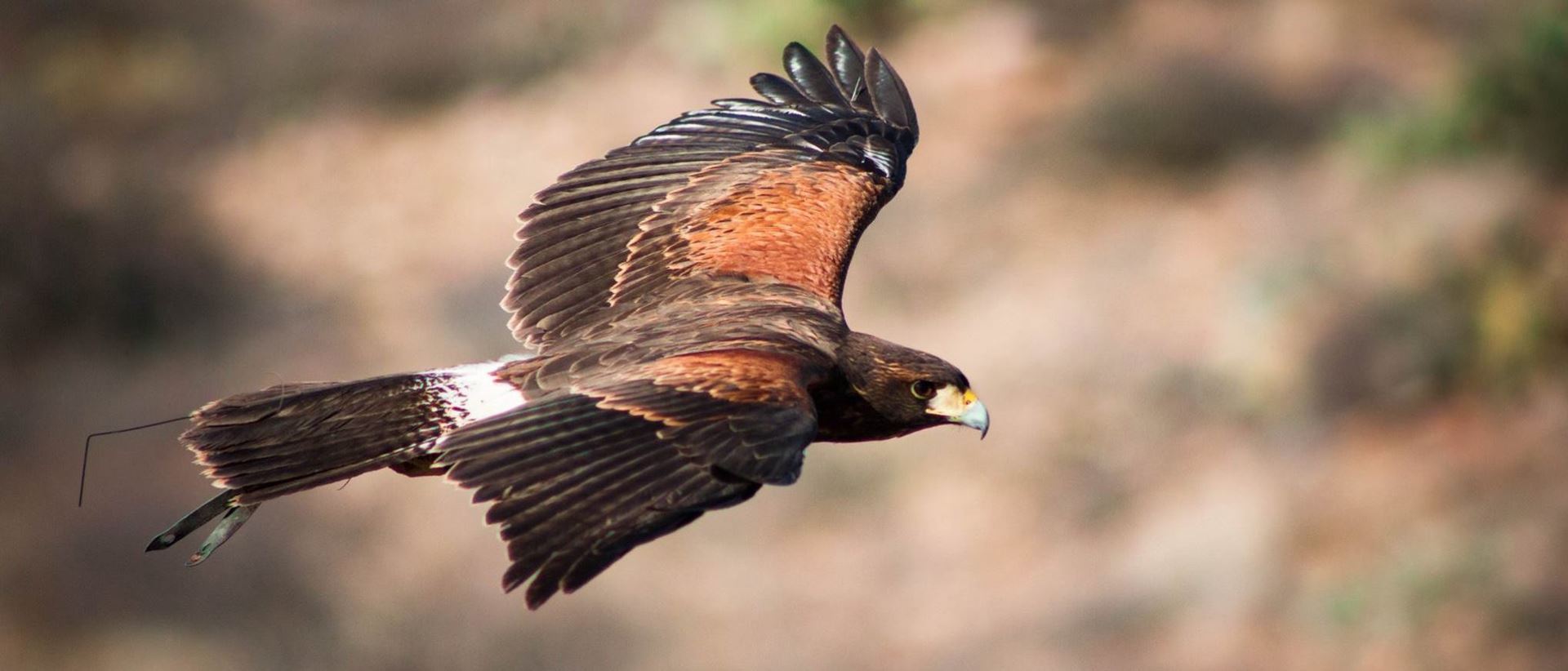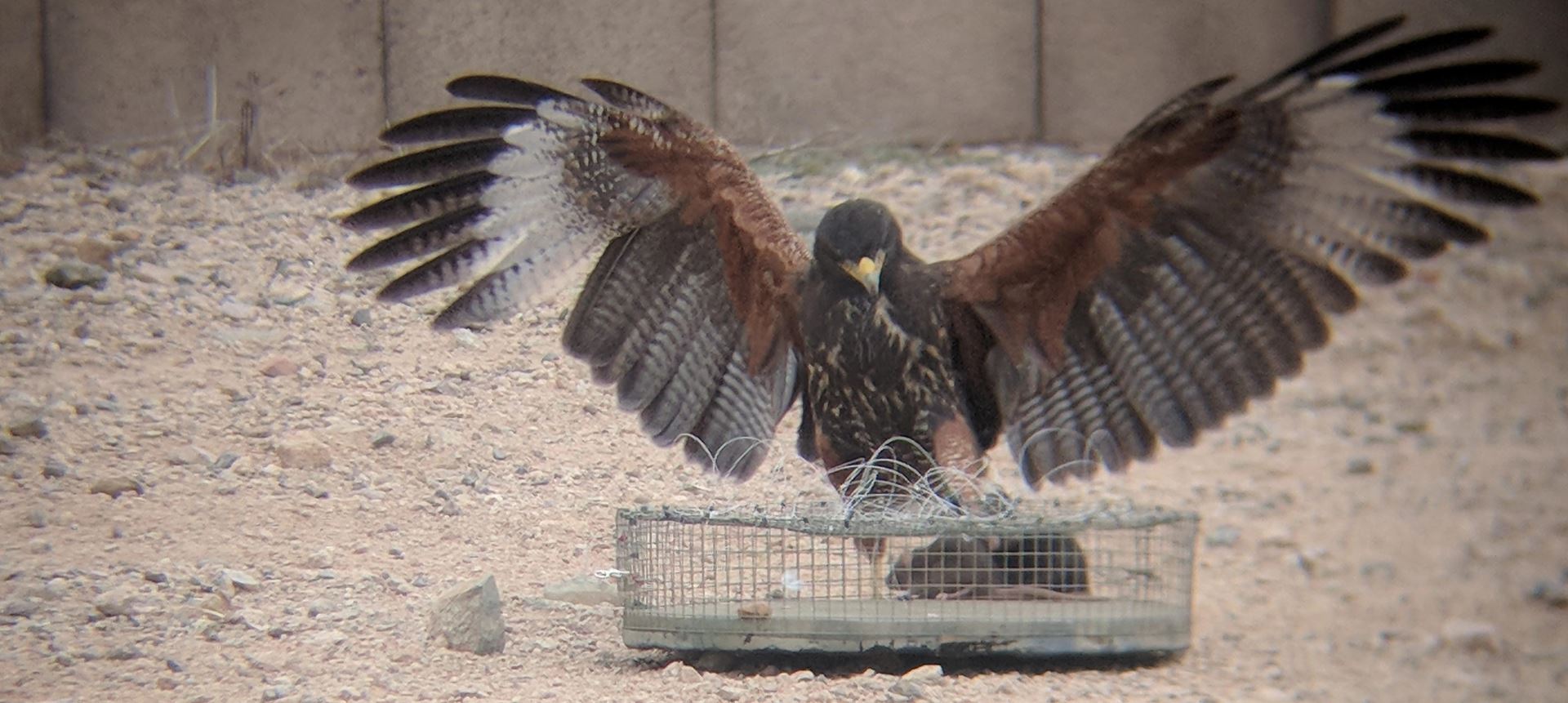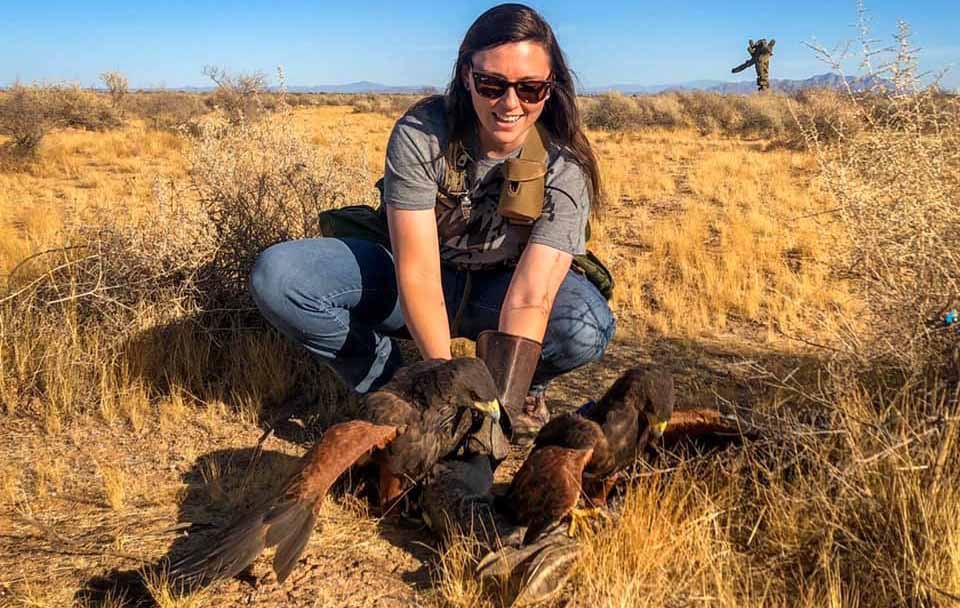Congratulations! You've done the hard part. You found us. We weren't hiding, but there are so few of us that we're just not easy to locate. You've started a process that can be tedious and time consuming, but will never be very difficult, and the result will be far more rewarding and satisfying than any non-falconer will ever believe. Less than 10% of the people who express a significant interest in becoming a falconer go all the way.

Here are a few up-front questions you need to be able to answer to yourself:
1. Will you commit part of your waking hours to a creature who at the very best of times will merely tolerate your presence, is as affectionate as a stone, and at the worst of times will cause you heartache and puncture wounds? Can you commit to an average of an hour a day, every day, and two to four hours on a hunting day, regardless of school, family, or job - forever?
2. Are you 12 or older?
3. Are you an outdoors person? Do you like animals? Are you a hunter? Will you be able to hunt three to six times a week during the hunting season on the hawk's schedule - not yours? If you've never hunted, are you willing to learn?
4. Will you be able to convince the United States Fish and Wildlife Service, the Arizona Department of Game and Fish, and at least one general or master level falconer that you have the drive, the dedication, the motivation, the book knowledge, the facilities and equipment to properly house and care for a raptor?
Answers: Only the first two really count. The third one can be learned. The fourth is a lot easier than it reads.

Other questions you must start thinking about are:
1. Which hawk do you want to begin with? There are a variety of raptors available to hunt with. It will be up to you and your sponsor to determine which is the right bird for your situation.
2. What are you going to hunt for, and where are you going to hunt? These questions will drive the answer to the previous one. Always choose a hawk that’s appropriate for your environment; don’t try to make the hawk fit where it can’t.
3. Where are you going to house the hawk?
4. How are you going to transport the hawk between house and the hunt?
Still interested? The AZGFD has a checklist of things you’ll need to do to become a falconer. Go to: https://www.azgfd.com/hunting/hunt-draw-and-licenses/special-licenses-2/sport-falconry-license/ and read what’s required.
What else should you do?

Join the Arizona Falconers Association (http://www.arizonafalconers.com) There are about 100 falconers in Arizona (of 5,000 nationwide) and we are the only falconry support group that exists for Arizona.
You begin in falconry as an apprentice to another falconer, known as a sponsor. The apprenticeship period lasts for a minimum of two years. The sponsor guides you in creating your hawk house, getting your hawk, manning and feeding it, hunting with it, and so on. Unless you are fortunate enough to know a master or general falconer willing to sponsor you, you will end up talking to the Arizona Falconers Association Apprentice Liaison for the names of candidate sponsors. These sponsors come from the ranks of the Arizona Falconers Association. Other benefits include the club's publications, plus the fellowship of people who can and will share the experiences that you are going to be going through. You can join before you have a hawk, take the test, or finish reading this.
We're often asked for sources of equipment. Please check our Recommended Vendors page for contact information about vendors.
We're often asked "how much does it cost?” Falconry is not a sport you can do on a shoestring, but you don't have to be independently wealthy either. As an apprentice, you will almost always start with a hawk that is trapped from the wild. Consequently your first hawk costs nothing directly. However, building the hawk house (this is usually the largest expense), getting a proper perch, swivel, glove, and other necessary equipment can cost you a significant amount. There are also annual State falconry and hunting license fees to pay. Don’t forget the costs of gas for your hawking truck and an initial supply of hawk food. There is a relatively large up-front cost, but once you have all the equipment and facilities you need, falconry is not necessarily an expensive sport.

What do we expect from you? In your first year, we expect you to trap, man, train, and hunt with a wild-taken raptor. Previously, only Red-tailed hawks and American Kestrels were permitted for apprentices. With the new state and federal regs in place, this is no longer the case. While these two species are excellent apprentice birds, and will remain the birds of choice for most apprentices, there are situations where other species might be appropriate for the beginner.
Once you successfully hunt with a Red-tail, the other ground-oriented species are easy. Once you hunt successfully with a Kestrel, you will find the larger falcons to be just that - larger, more impressive, certainly, but not harder to work with. If the magic doesn't work and it becomes obvious to you and/or your sponsor that falconry just isn't for you, we expect you to release your hawk. Falconry isn't everybody's cup of tea. Having to release your bird because you aren't cut out to be a falconer is extremely rare, on the order of less than one a year, but it's better than causing irreparable damage to you or one of our treasured hunting partners.

Notice that we said we expect you to hunt with your hawk. There will be blood and you will get your hands dirty. Falconry is a hunting sport. It is not about carrying a hawk around to look cool. If you are not willing to hunt with your hawk, Falconry is not for you. These animals are not pets.
This all seems like a lot of work. Heck, it is a lot of work! But the first time that wild creature freely comes to you and lands on your fist, the tediousness of training, seemingly endless bothers with the hawk, spouse, friends, neighbors, the bureaucracy, and animal rights people will be forgotten like they never existed or ever mattered.
Still with us? OK. Let’s move on to the steps required to get started!
Good luck!
